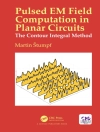Unmanned Rotorcraft Systems explores the research and development of fully-functional miniature UAV (unmanned aerial vehicle) rotorcraft, and provides a complete treatment of the design of autonomous miniature rotorcraft UAVs. The unmanned system is an integration of advanced technologies developed in communications, computing, and control areas, and is an excellent testing ground for trialing and implementing modern control techniques. Included are detailed expositions of systematic hardware construction, software systems integration, aerodynamic modeling; and automatic flight control system design.
Emphasis is placed on the cooperative control and flight formation of multiple UAVs, vision-based ground target tracking, and landing on moving platforms. Other issues such as the development of GPS-less indoor micro aerial vehicles and vision-based navigation are also discussed in depth: utilizing the vision-based system for accomplishing ground target tracking, attacking and landing, cooperative control and flight formation of multiple unmanned rotorcraft; and future research directions on the related areas.
Cuprins
Introduction.- Systematic Hardware construction.- Software System Integration.- Aerodynamic Modeling and System Identification.- Measurement Signal Enhancement.- Automatic Flight Control.- Flight Simulation and Experiment.- Cooperative Control of Multiple Rotorcraft.- Vision-based Tracking and Landing.- Micro Aerial Vehicles.- Future Research.
Despre autor
Guowei Cai’s research area is the development of unmanned aerial systems, aerodynamic modeling and flight control systems.
Ben M. Chen’s research areas include the development of unmanned systems, robust and non-linear control, and systems theory and control applications.
Tong H. Lee’s main research foci are in unmanned aerial systems, adaptive control systems, knowledge-based control and intelligent motion control.












